15 Herb Garden Planter Ideas – To Grow An Aromatic Banquet On Your Patio
Go big on flavor with an edible container garden filled with delicious, fragrant herbs. Discover beautiful planter ideas to suit every space, style, and budget.
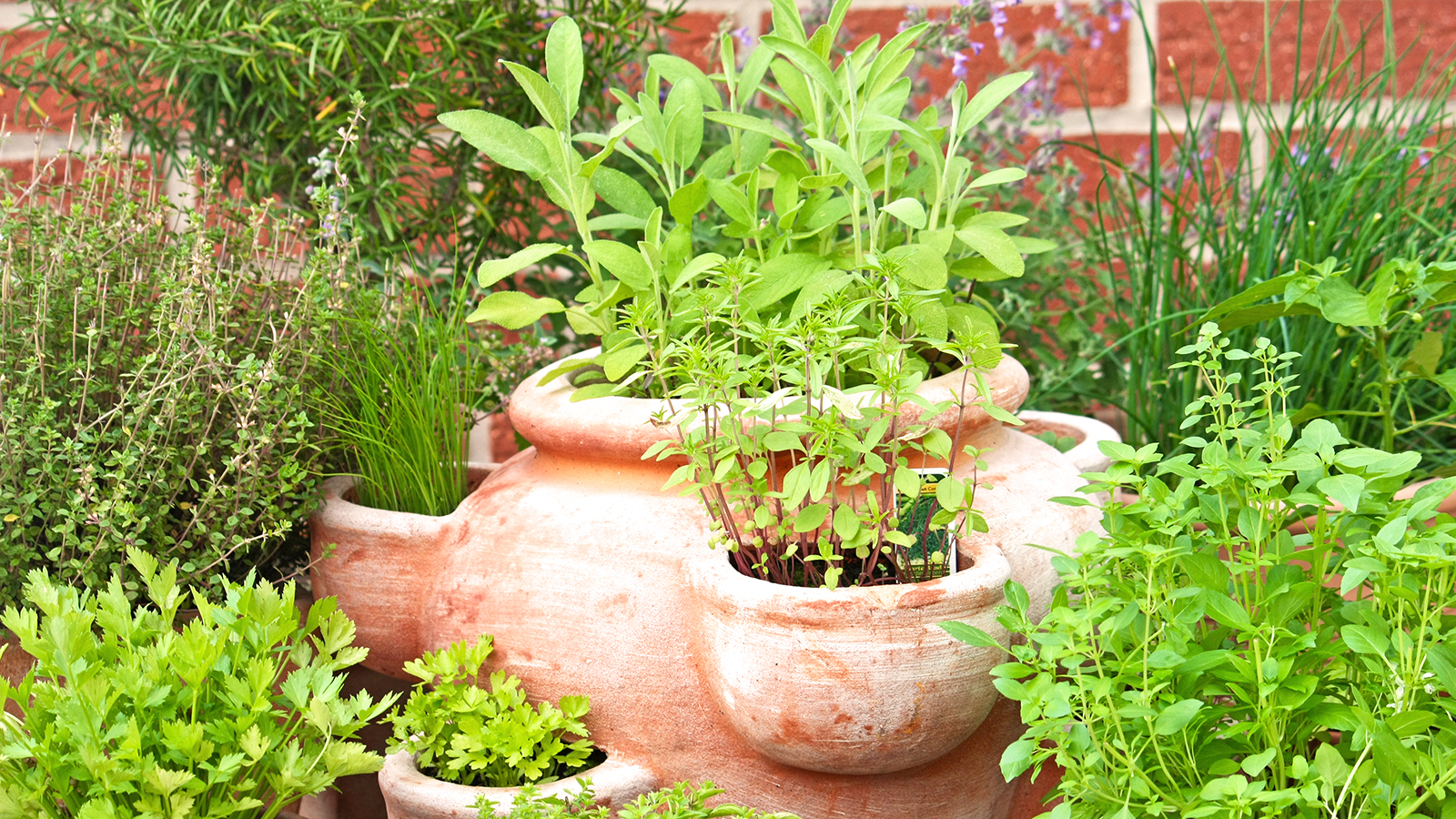

Is there anything more delightful than planting your own edible herb garden? Herbs are fabulously aromatic and hold the secret to unlocking the flavor of many foods. Yet they have more to offer besides, brimming with therapeutic powers and ornamental value.
The most beautiful herbs can hold their own in flowerbeds, and are just as appealing to precious pollinators as they are to us. Certain herbs are also powerful pest repellants, helping to reduce the numbers of unwelcome insects such as aphids and mosquitos.
It's little wonder, then, that so many gardeners want to keep their herbs close by. Growing herbs in containers on the patio is the best way to do this and allows easy access from the kitchen.
Any herb can be grown in a container as long as you factor in its mature size and fill it with well-draining potting mix. While many herbs are somewhat drought-tolerant, containers will require more regular watering.
Ideal herbs include basil, cilantro, chives, marjoram, mint, parsley, oregano, rosemary, sage, thyme, as well as several unusual herbs.
These stylish and versatile herb garden planter ideas work for spaces big and small, and include options for all budgets.
1. Display Pots on a Plant Stand
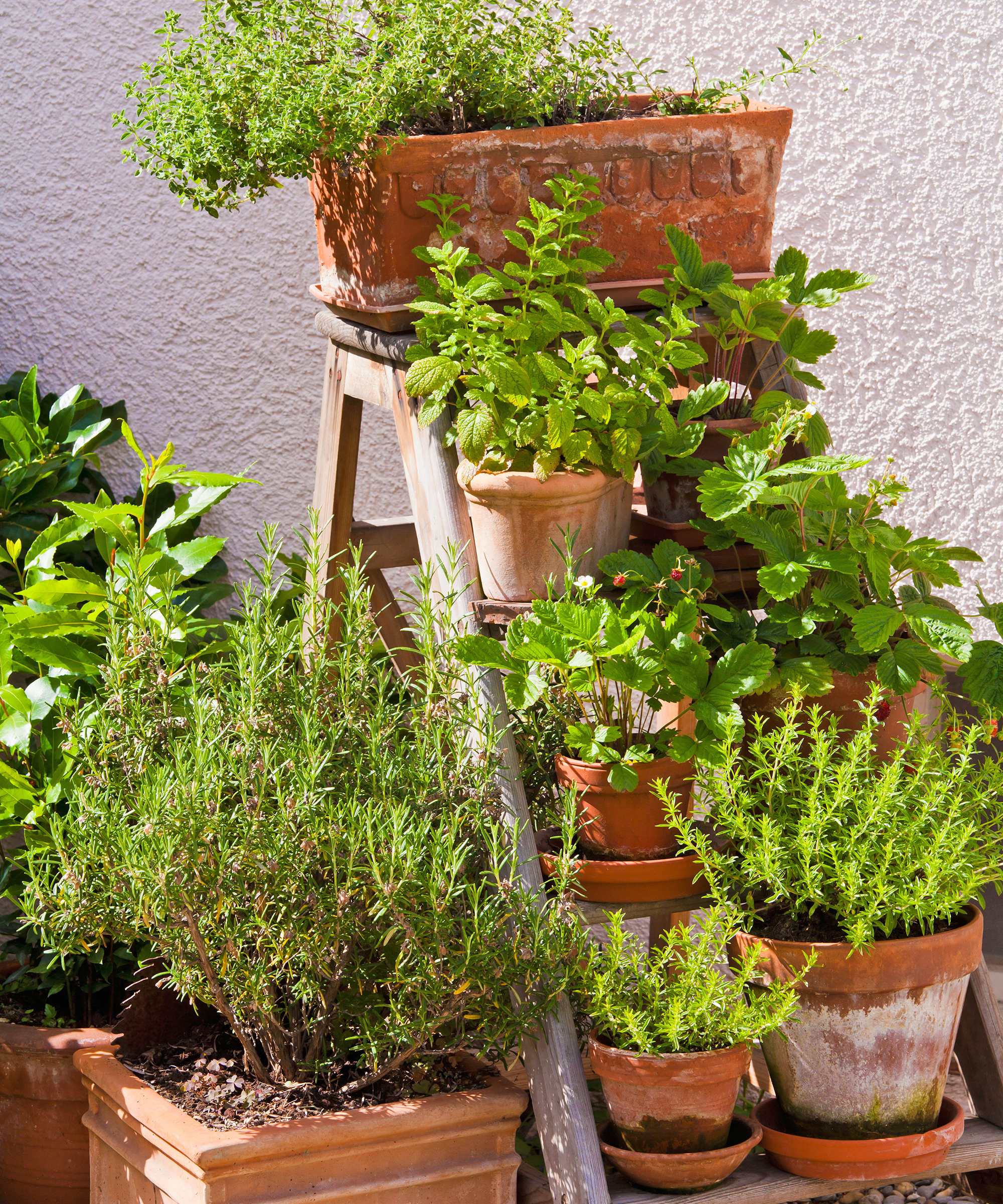
A themed herb garden looks wonderful when containers potted with different varieties are grouped in a coherent display. Recreate this idea to add life to a dull corner in the garden.
Gardening tips, videos, info and more delivered right to your inbox!
Sign up for the Gardening Know How newsletter today and receive a free copy of our e-book "How to Grow Delicious Tomatoes".
Use a plant stand to add height to the display – this can be an ornamental cast-iron design or even an old step ladder.
Position a larger pot on the top level, and mix up pot sizes as you go down the levels.
2. Use Mini Metal Beds
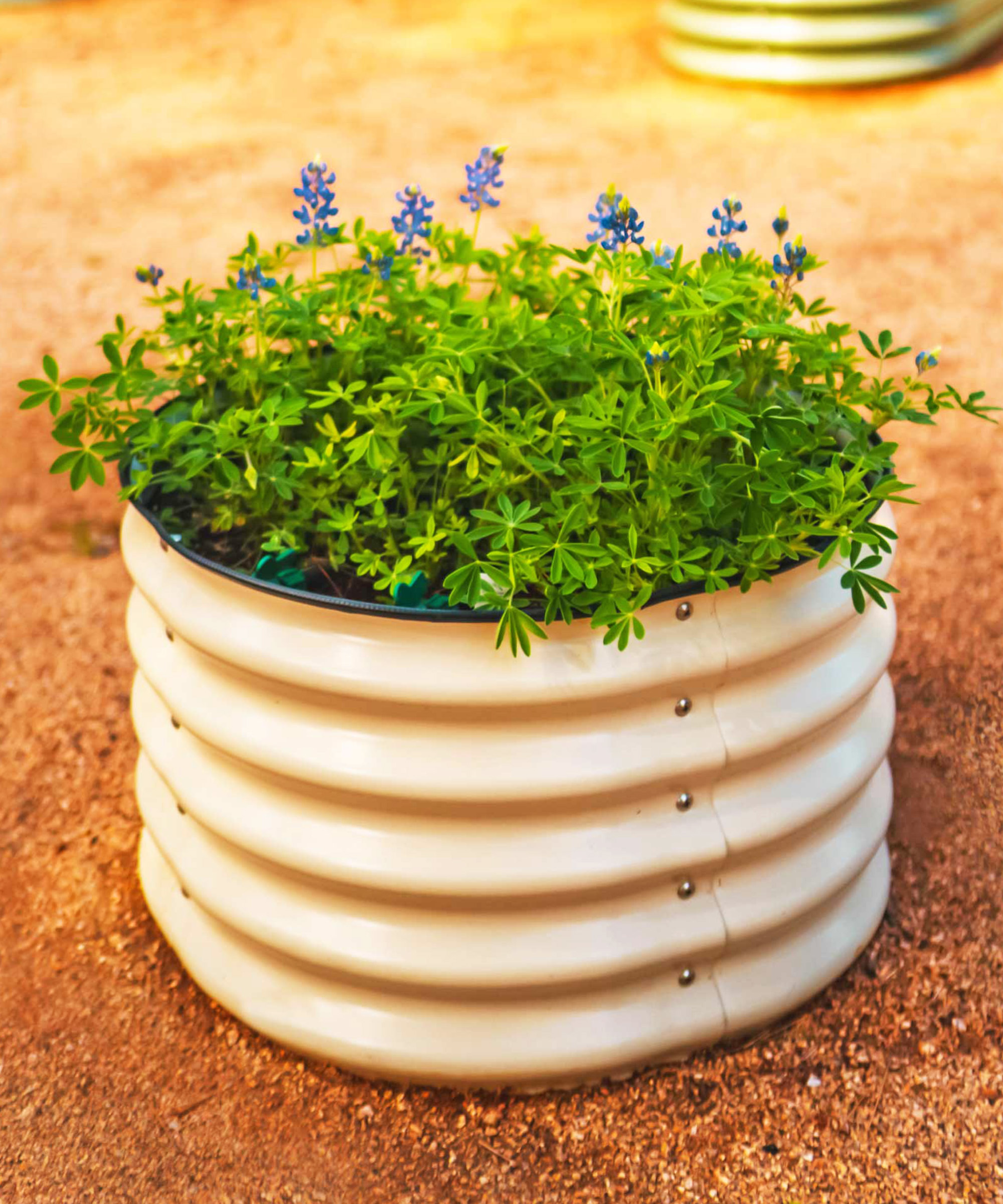
Metal raised garden beds are extremely popular for good reason: they look great, are extremely durable, and will last for decades.
Larger planters are ideal for vegetable gardens and ornamental plants, but Vego Garden's herb garden bed, available in the Gardening Know How Shop, is the perfect size for herbs, at 17 inches tall and 24 inches wide. Better yet, it comes in a two-pack so you can make more of a feature of your herbs.
The corrugated design has a charming country look and is made with non-toxic materials that are food-safe and corrosion-resistant. This means they do not contain chemicals that could leach into the soil. The planters come in a range of stylish colors to suit any garden style.
3. Hang a Window Box
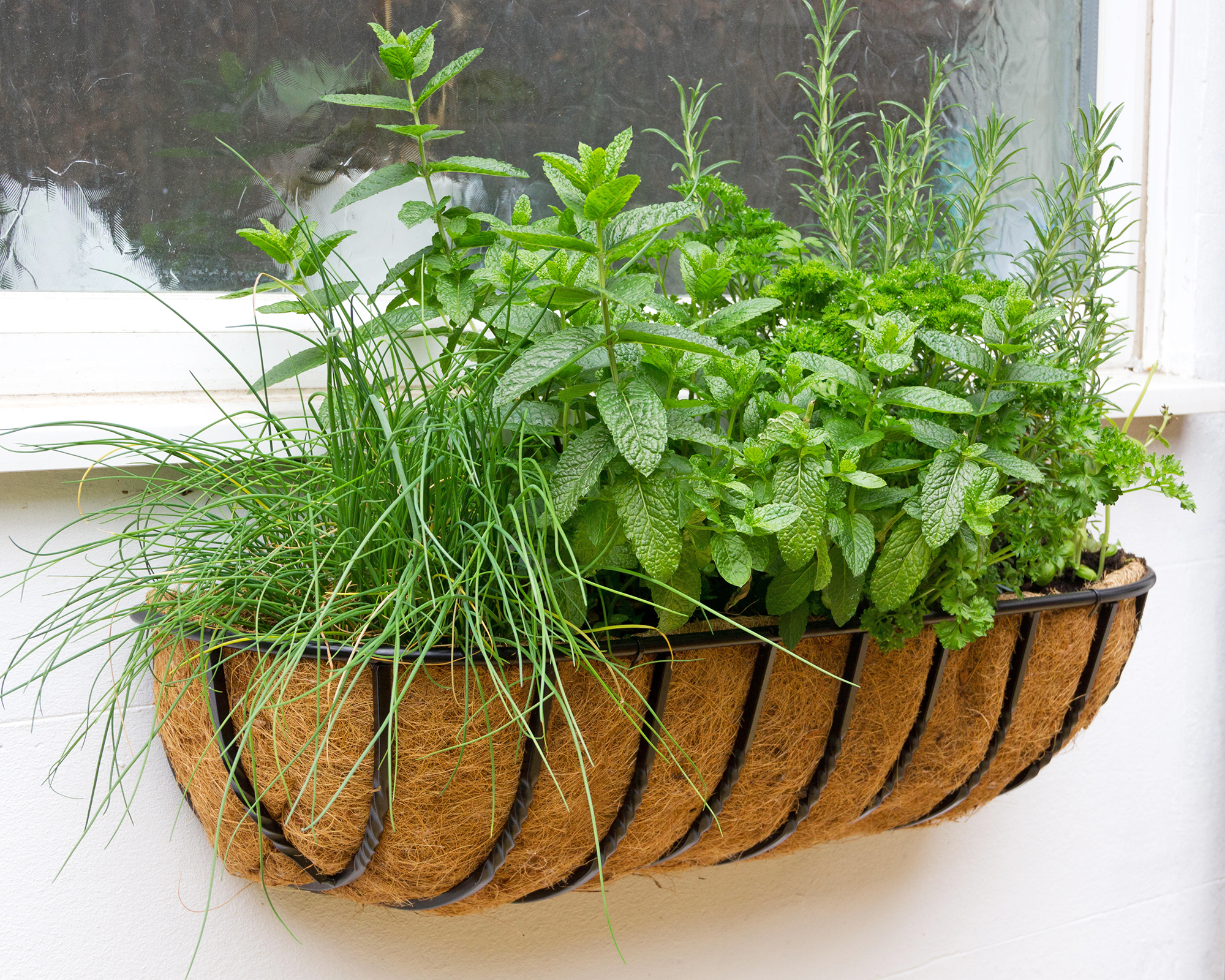
If you are short on floor space, why not plant a window box with herbs? Not only a space-efficient solution, it keeps herbs at an accessible height. When planted at the kitchen window you can enjoy their fragrance and simply reach out to harvest them.
Another advantage is that many herbs are lower maintenance than traditional window box flowers and are a draw for butterflies and bees.
In order for the herbs to receive enough light, install your window box on a south or west-facing window. It should receive a minimum of six hours of direct sunlight every day.
4. Make a Vertical Herb Garden
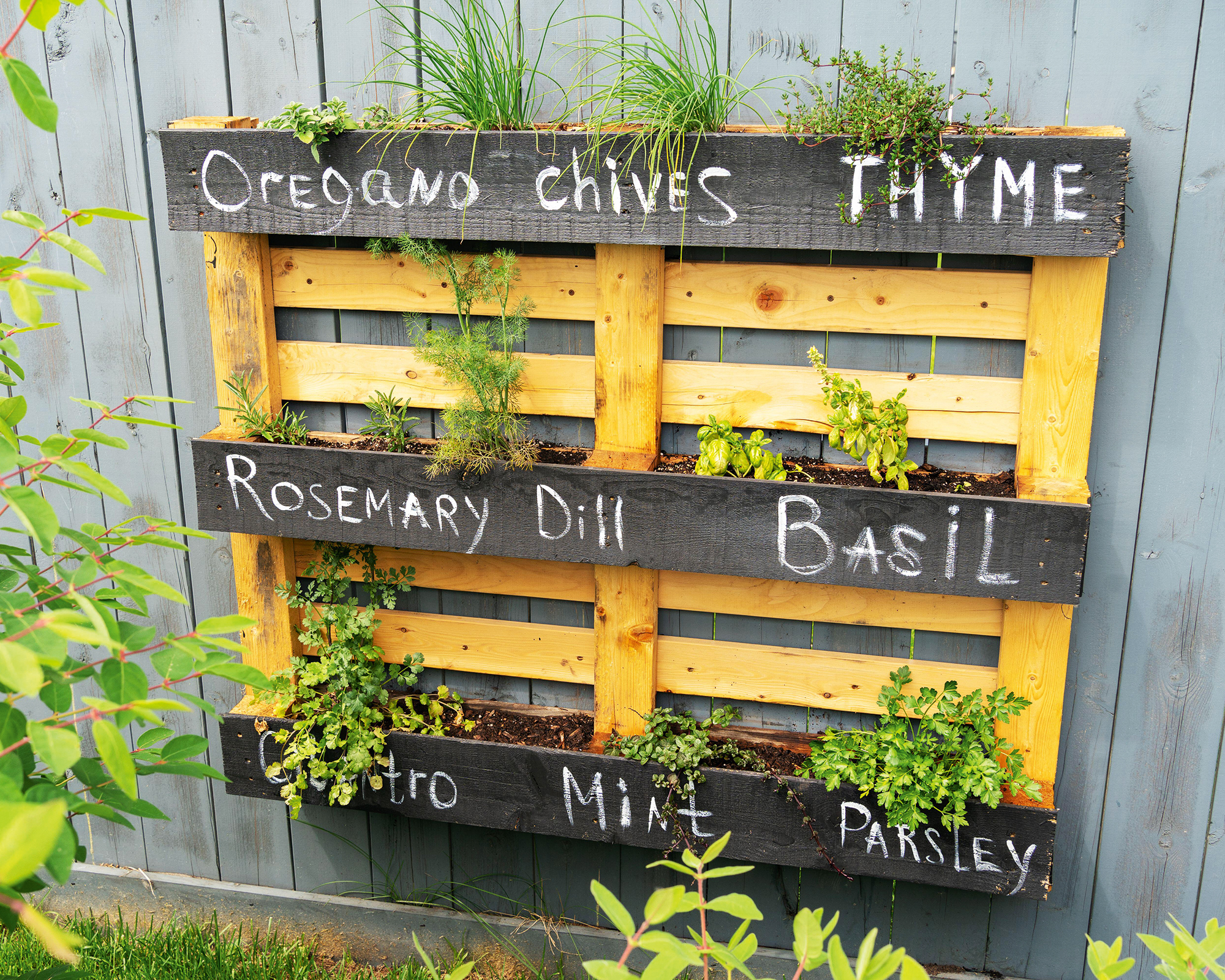
An upcycled pallet herb garden is such a clever, cost-effective idea. This characterful design accommodates nine different types of herbs. You can recreate the labels by painting the front panels with chalkboard paint.
Check that the pallet is not pressure-treated, as this can contain toxic chemicals, and give it a good clean before using it.
Staple anti-weed membrane between the lower slats, which will create planting troughs to hold the compost.
To hang your planter on the wall you will either need to install brackets, or attach it directly to a wooden fence.
5. Reduce Maintenance with a Self-Watering Raised Planter
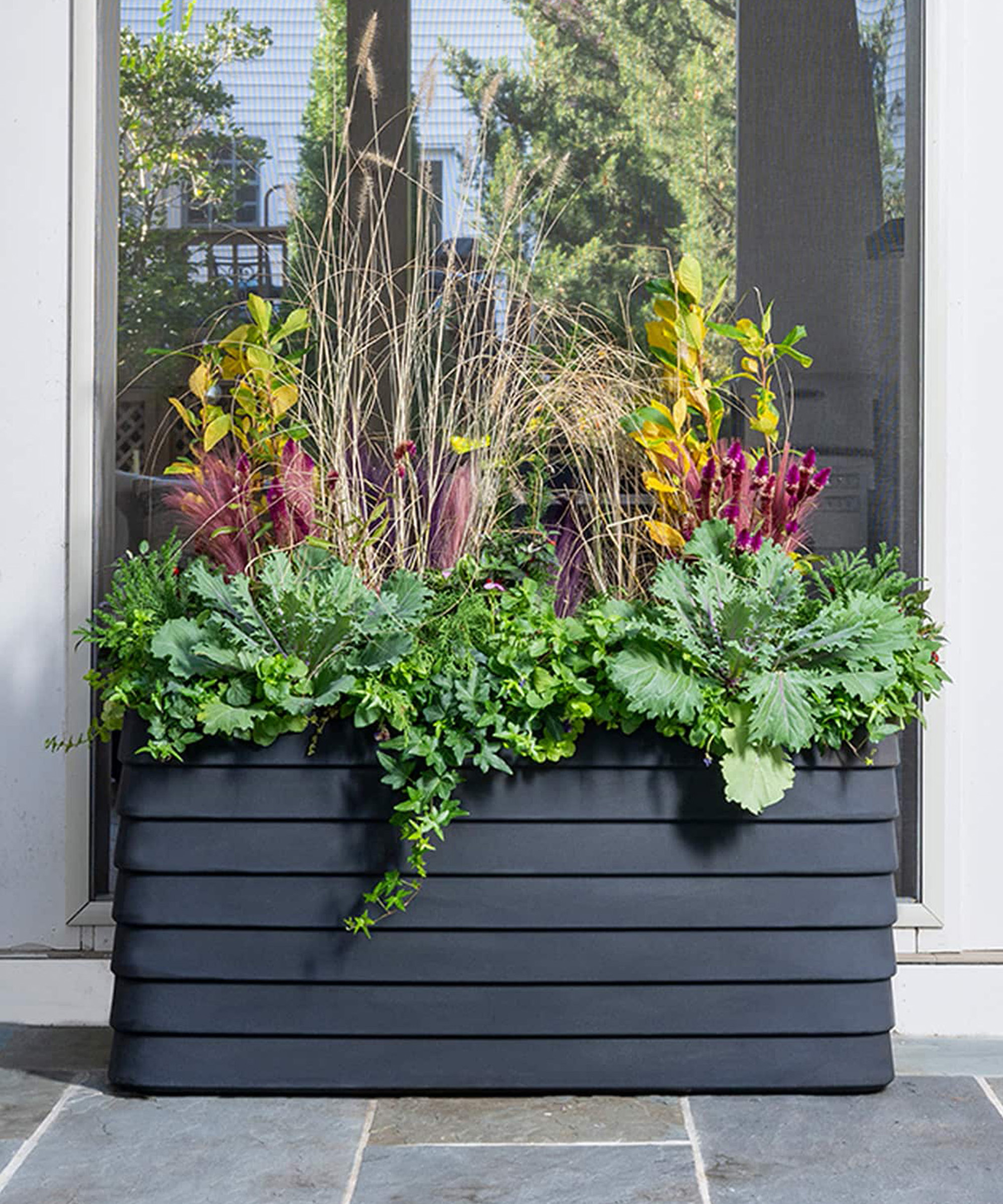
There are so many raised garden bed ideas that can be tailored to herbs. Add a stylish planter box to a patio to keep herbs accessible for cooking and to enjoy their flowers and delicious aromas.
Crescent Garden's slat planter box, available in the Gardening Know How Shop, is inspired by traditional wooden planters with a contemporary twist. It's the ultimate low-maintenance solution, as it features self-watering technology, which can keep your herbs watered for weeks at a time.
6. Plant a Tiered Pot
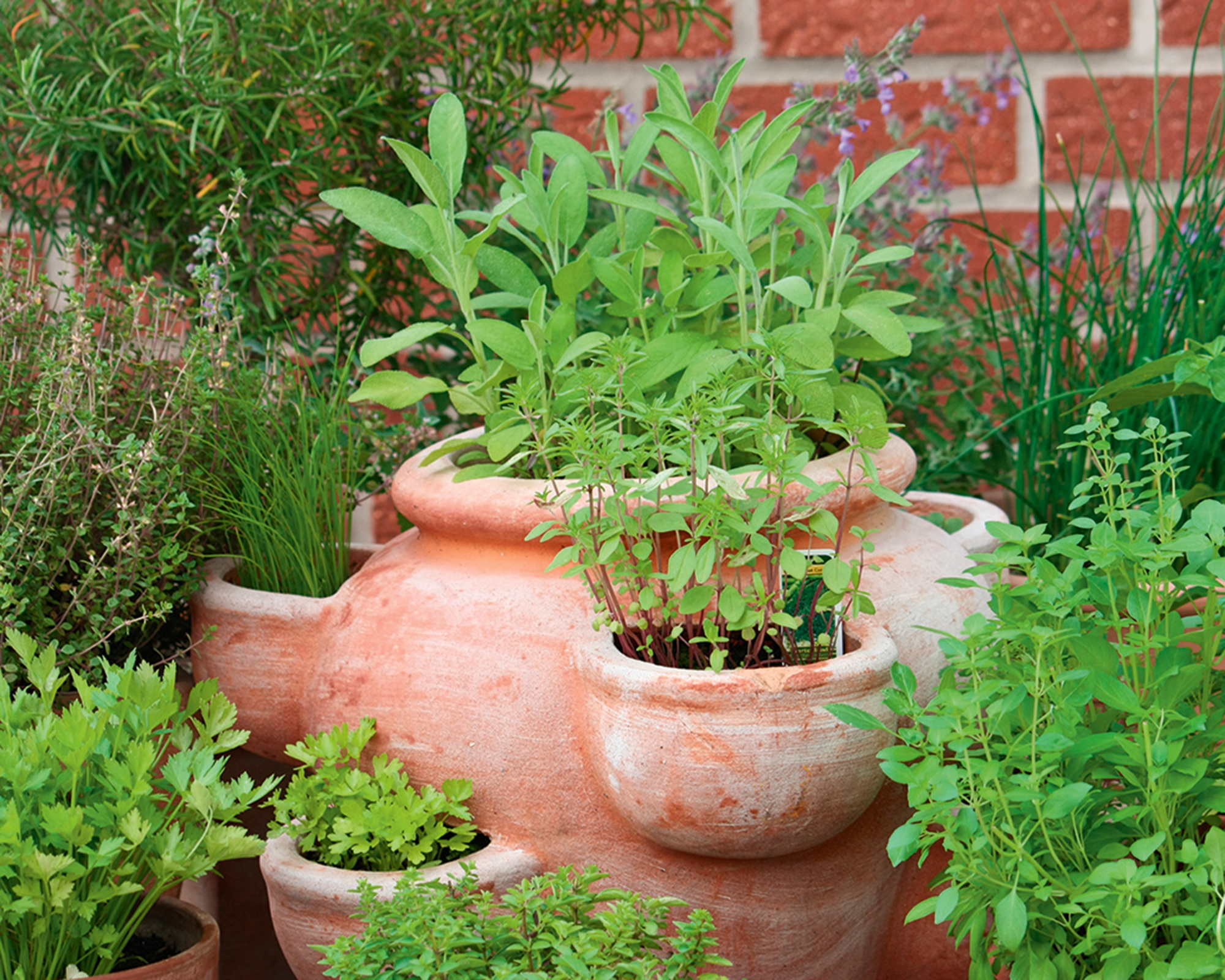
A tiered terracotta pot with planting pockets is a beautiful solution for planting up smaller herb plants. Originally intended for strawberries, and often used in Victorian times, the planters are more evocative of the Mediterranean when planted with herbs.
This style of pot needs to be planted in stages, starting with the bottom layers, and firmly filling the pockets, before working your way to the top. Choose a bushy plant for the top layer, such as rosemary, to give it space and add impact.
7. Grow a Hanging Herb Basket
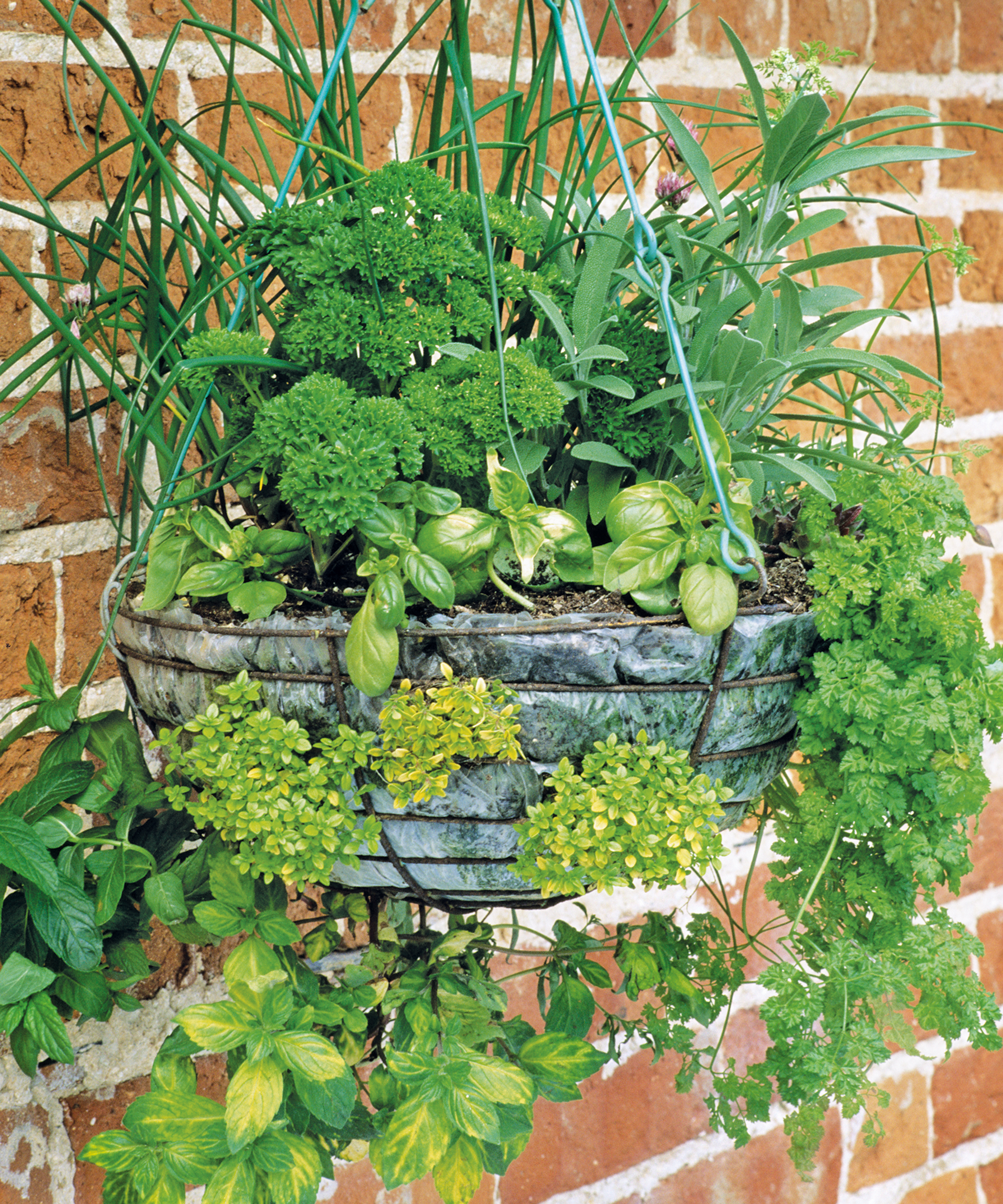
A hanging herb garden is perfect for adding interest to a bare wall and introducing inviting aromas at head height.
You can grow almost any herb in a hanging basket, but consider the plant's mature size and compatibility with other varieties when growing a mixed basket. Consider combining an upright flowering herb, such as chives or purple basil, with a trailing herb that will creep over the side of the basket, such as trailing rosemary, creeping thyme, or hanging mint.
Wire baskets lined with sphagnum peat moss or a coconut liner are ideal for the task, and should ensure good drainage. Water regularly and position your basket where it will receive six hours of sun each day.
8. Stack Them High in Crates
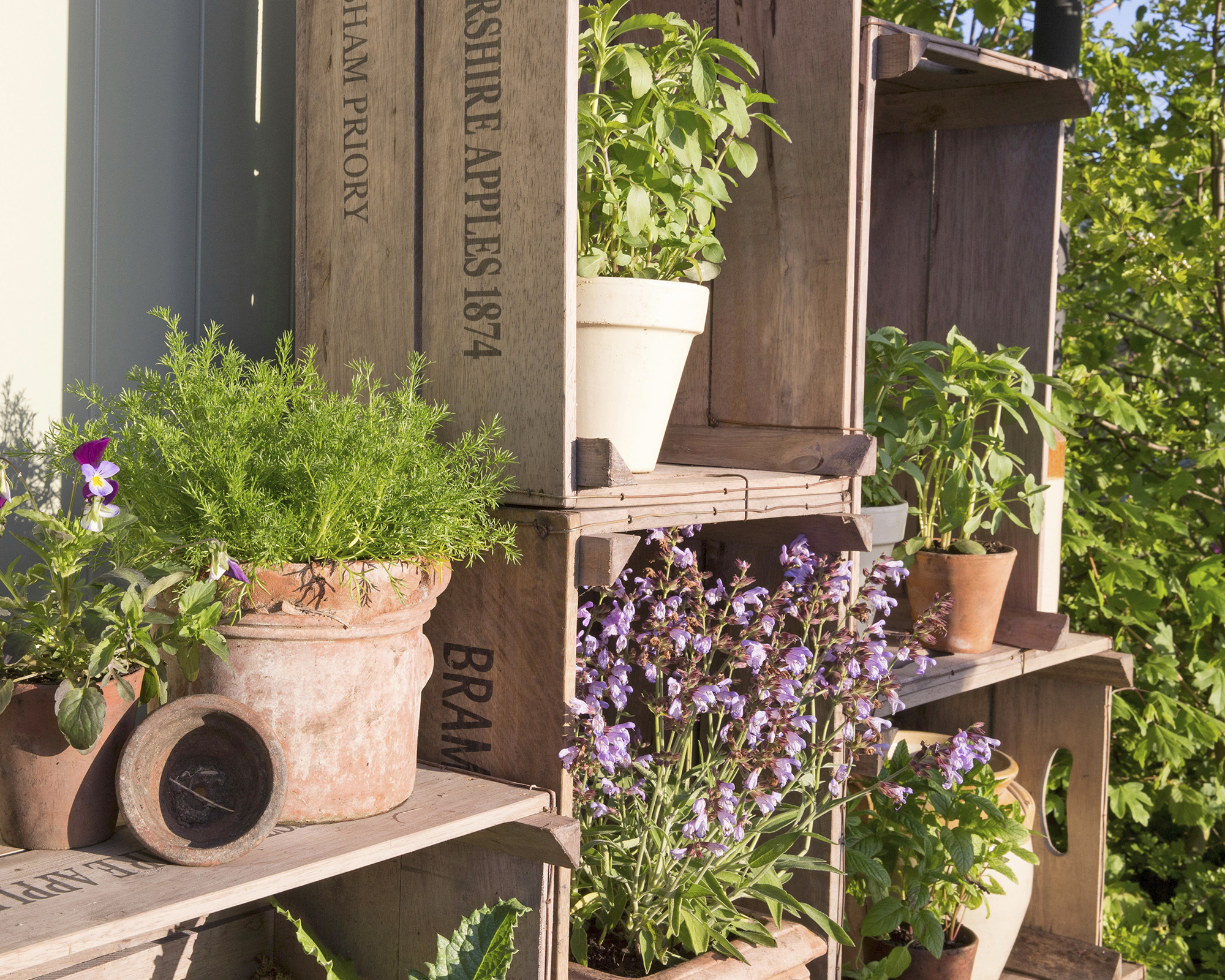
Make a gorgeous garden feature by stacking vintage crates on top of each other to create open shelving, and then adding herbs planted into decorative pots.
The effect is especially charming when the crates feature old brand names and dates. Try flea markets to source vintage crates.
The crates will need to be anchored to each other and to the wall to prevent the display from toppling over.
9. Pair Herbs with Vegetables in an Oversized Planter
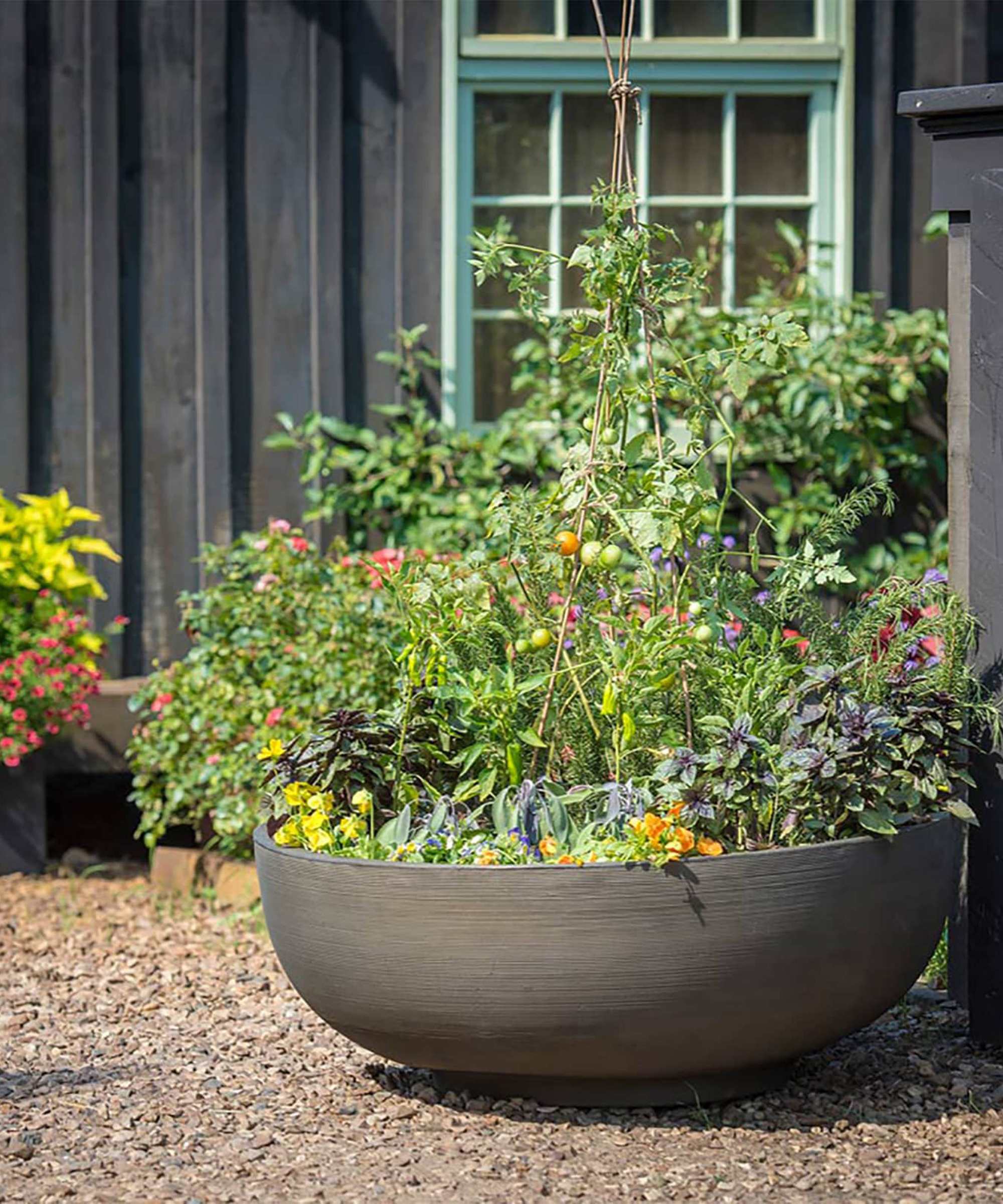
While a display of smaller herb pots is brimming with eclectic charm, a large statement planter is often much more practical.
A large container needs watering less often and allows for plenty of soil to enable plants to develop deep roots. It also has a cleaner, less-cluttered look that lends itself to a modern patio design.
Many herbs make excellent companion plants for vegetables, attracting pollinators and warding off pests with their fragranced foliage and flowers.
Crescent Garden's Orinoco double-walled bowl planter, available in the Gardening Know How Shop, is ideal for a mixed vegetable and herb bed. It's made from a durable, lightweight, recyclable material that can stand up to any weather. Its double-walled design keeps roots insulated against extreme heat and cold.
10. Personalize Your Herb Planters with DIY Markers
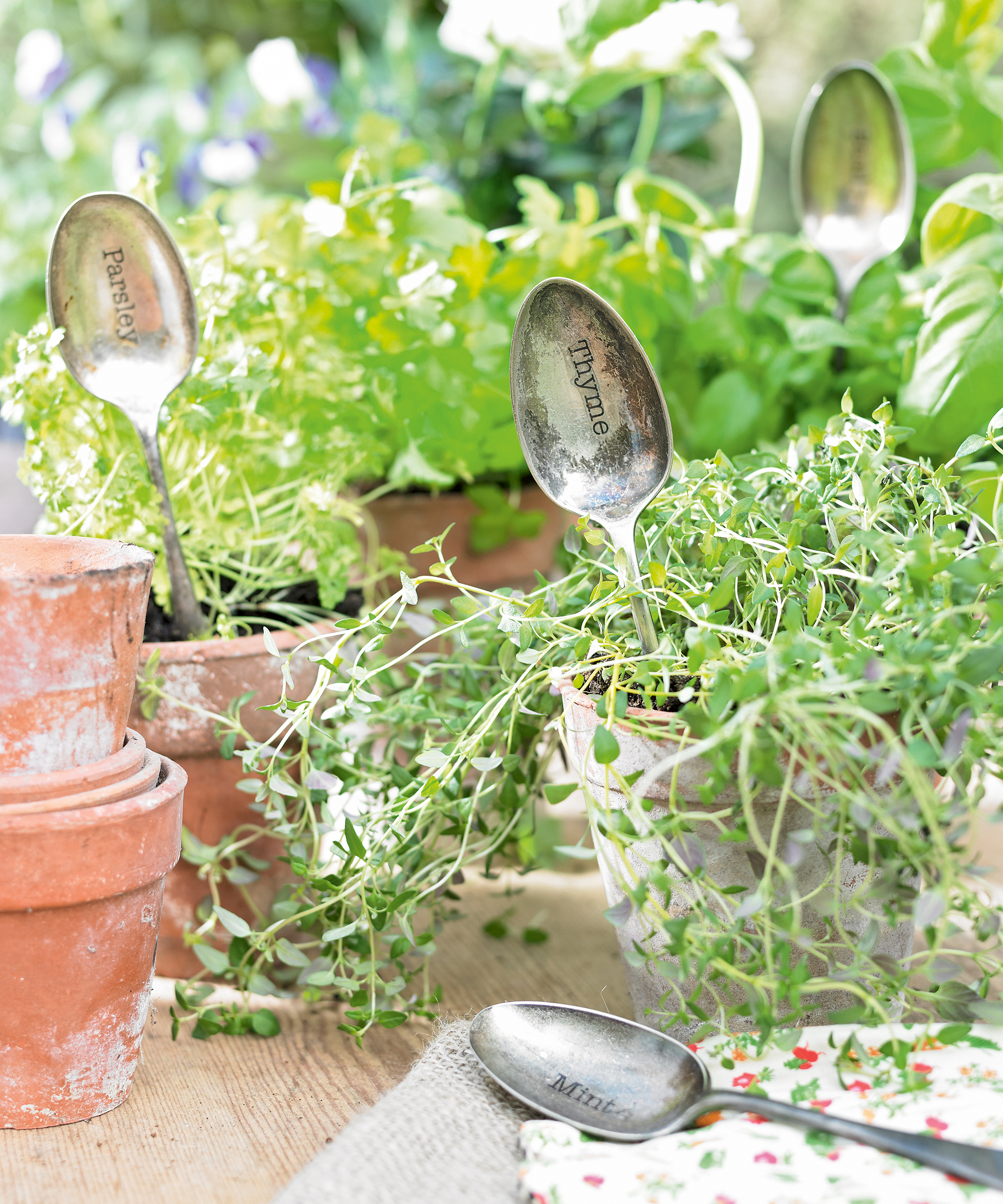
Making plant labels is a fun way to personalize your herb planters. There are so many different options from wooden designs to painted stones.
These labeled spoons add a vintage touch and will highlight the culinary value of your herb garden. Source old metal spoons at thrift stores.
You can make your own clear labels using an image transfer medium, and apply it on top of your herb titles, which need to be printed onto white paper. Apply three thin coats to create a clear plastic-like firm. When dry, you can wet the backing paper and rub it off, leaving the design in place.
This can then be glued onto the spoon and sealed with clear lacquer.
11. Arrange Small Pots in a Herb Theater
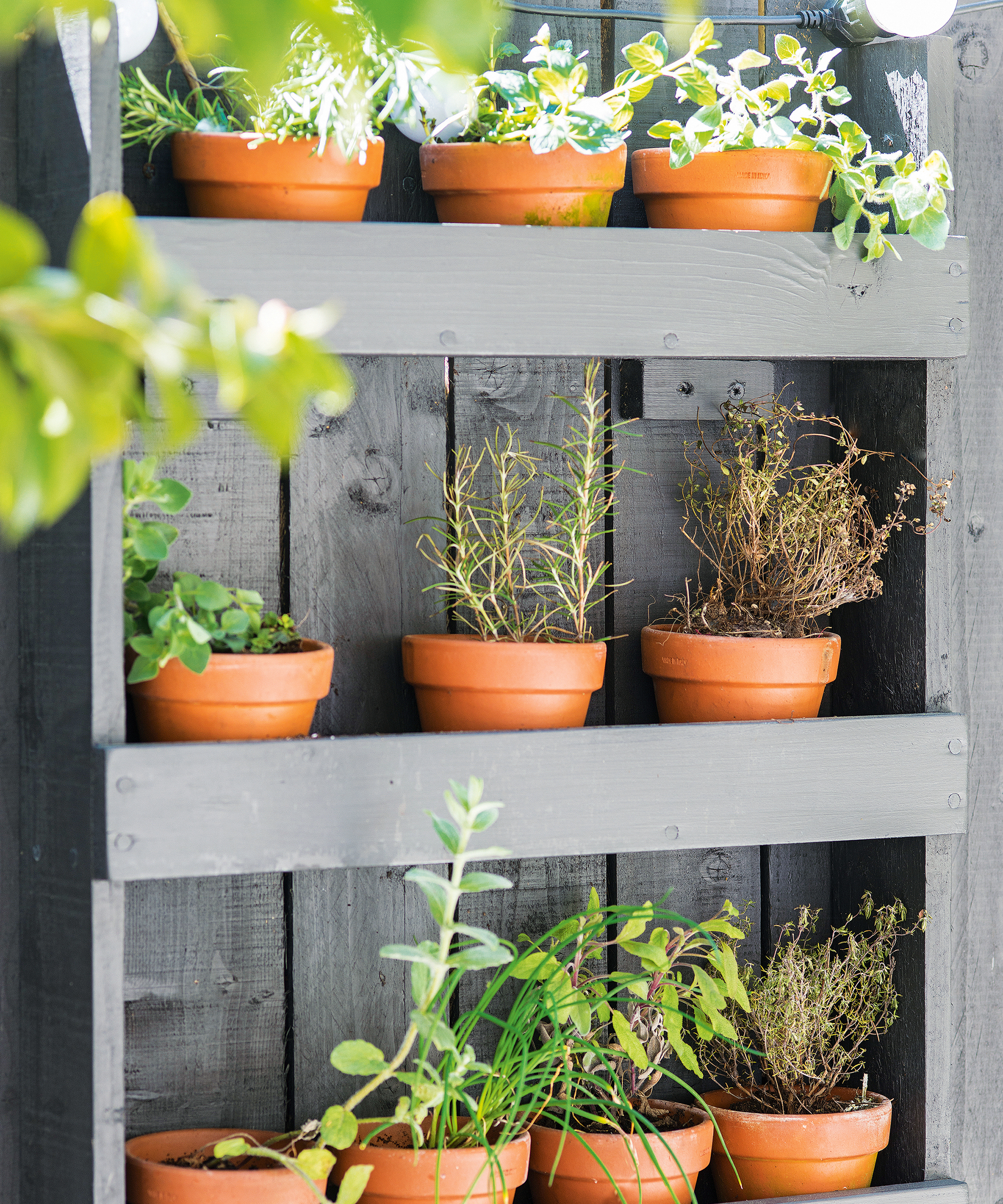
A herb theater is inspired by the traditional European concept of auricula theaters, originally designed to protect delicate primula auricula and later used as more decorative display pieces.
The idea uses a wall-hung shelving unit neatly filled with rows of similarly sized terracotta pots.
It's a great option for displaying a variety of smaller potted plants in a way that still feels elegant. Here, painting the shelves to match the fence adds a contemporary feel to the design.
12. Soften Hard Edges with Wicker Planters
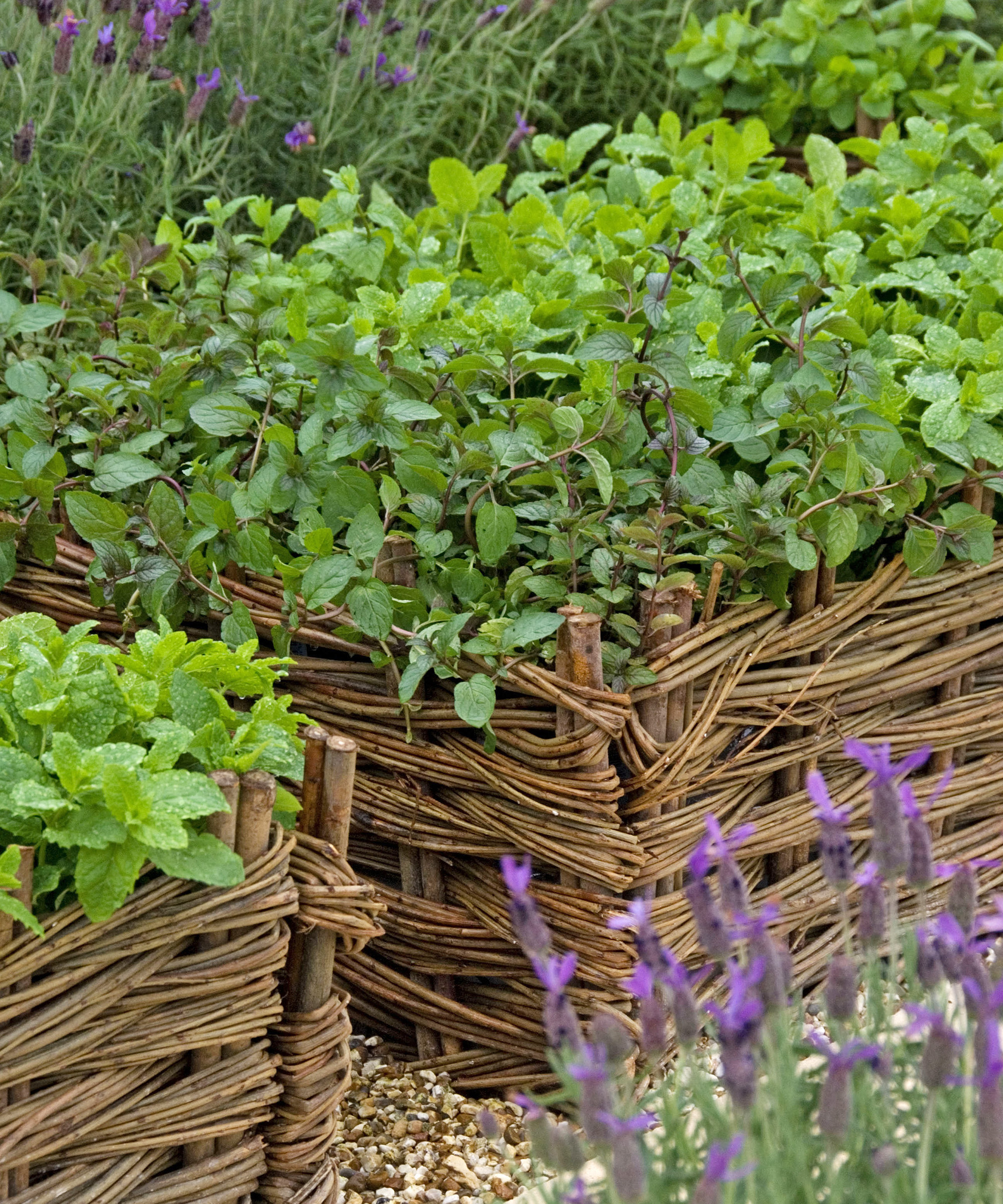
Wood and metal planters and raised beds add a harder edge to a garden, but a wicker design creates a softer artisanal feel to the space.
Willow and rattan are both beautiful choices that feel so natural paired with herbs. They must be fitted with a liner in order to hold the soil, but the liner should include drainage holes so that the planter does not become water-logged.
13. Elevate a Balcony with a Railing Planter
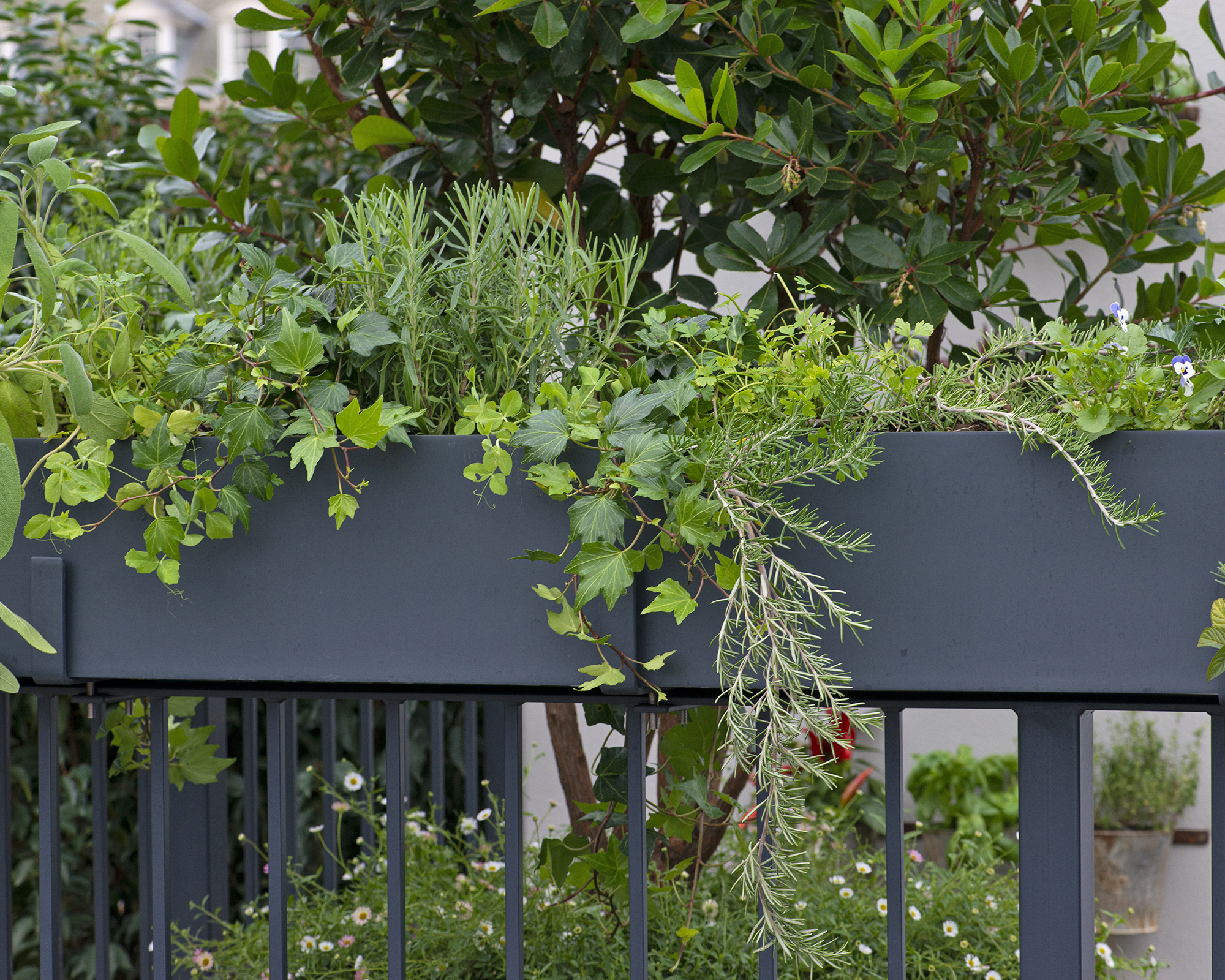
If your growing space consists of a balcony, then you need to think outside the box to create a lush herb garden.
Containers and small raised beds are both essential balcony garden ideas. However, a herb box that's integrated into the railings is a most elegant solution that will make your planting feel like part of the building design.
You can recreate the idea by using "bridge" planters, designed to sit with the railing in the groove, or window box-style planters with hooks that will clip over the top of the railing. It looks particularly seamless where the planter boxes match the color of the railings.
14. Rest Narrow Planters on Walls and Raised Bed Edges
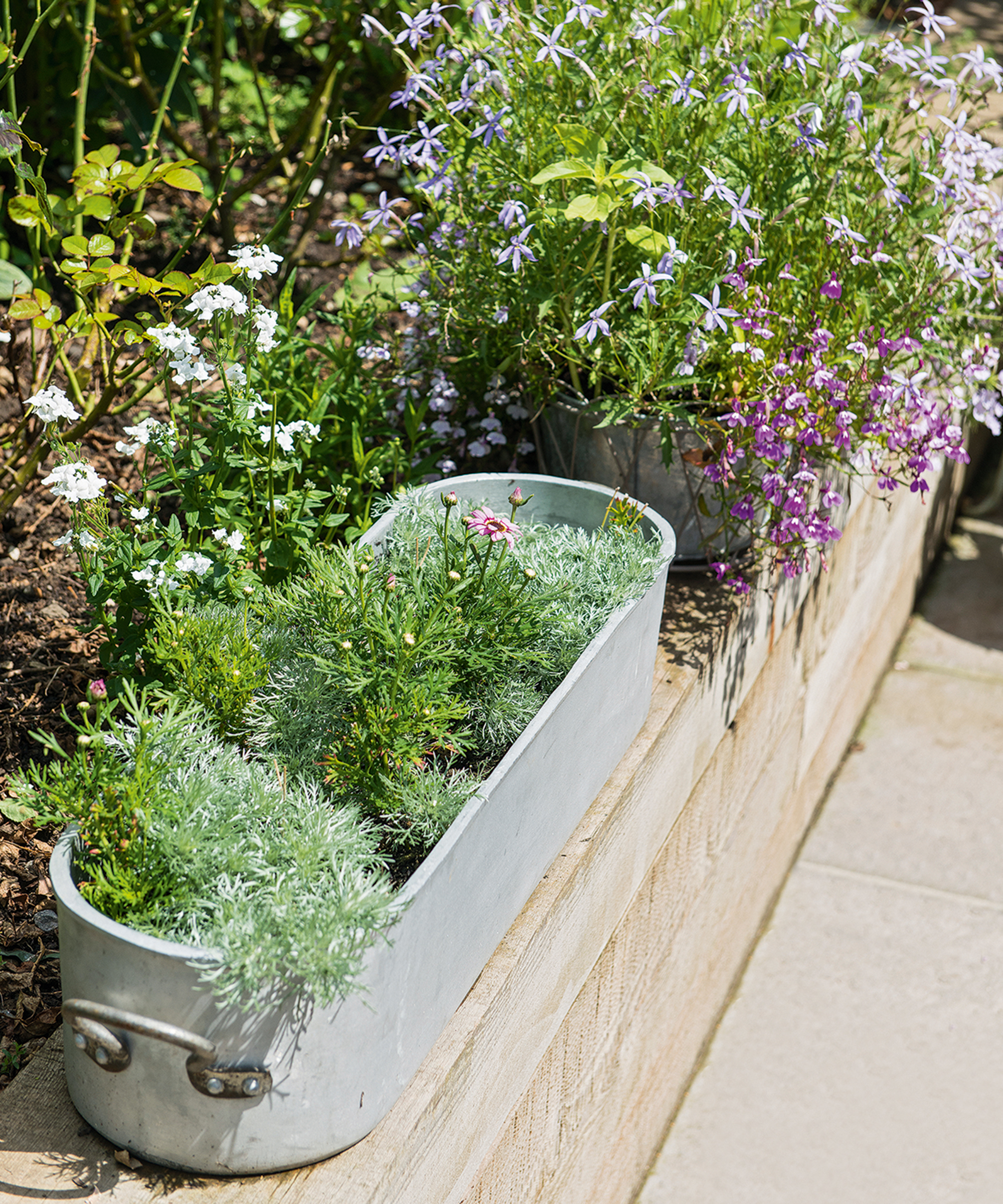
A narrow trough-style planter is perfect for herbs and offers so much flexibility in positioning. Add one to a deep raised bed edge, retaining garden wall, or wide step.
You can also use one to make a gorgeous table centerpiece on an outdoor dining table, filled with herbs that guests can snip and add to food and drinks.
This style of planter is also highly space-efficient, making minimal encroachment on a small patio area.
15. Get Creative with Upcycling
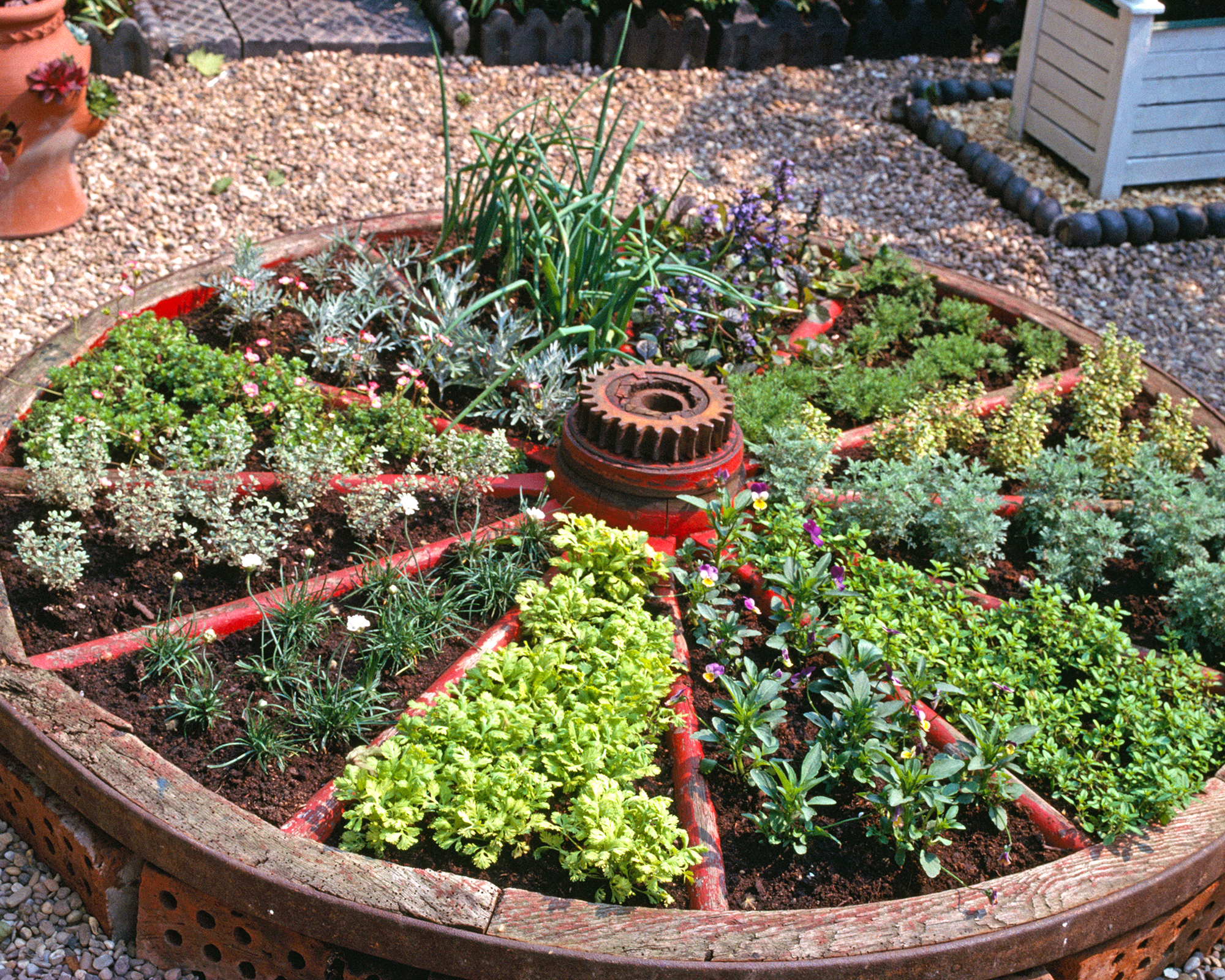
A homemade planter offers a wonderful opportunity to express your creativity and, when made using recycled materials, is a highly sustainable option.
In this example, an old wagon wheel is repurposed into a circular planter with a brick base, but other ideas include old furniture, kitchenware, sinks, wheelbarrows, or even a small rowing boat.
When repurposing old items as herb or vegetable planters, it's important to consider whether the material is food-safe. Avoid items that may contain toxic materials, often found in old paints.
This article features products available from third-party vendors on the Gardening Know How Shop.

Melanie is an experienced gardener and has worked in homes and gardens media for over 20 years. She previously served as Editor on Period Living magazine, and worked for Homes & Gardens, Gardening Etc, Real Homes, and Homebuilding & Renovating. Melanie has spent the last few years transforming her own garden, which is constantly evolving as a work in progress. She is also a passionate organic home grower, having experimented with almost every type of vegetable at some point. In her home, Melanie tends to an extensive houseplant collection and is particularly fond of orchids.
-
 Looking For Plants To Give You The Soft And Fuzzies? Try These 5 Fuzzy Leaf Plant Options
Looking For Plants To Give You The Soft And Fuzzies? Try These 5 Fuzzy Leaf Plant OptionsLovers of texture, drama, silver foliage and tactile plants will adore these special sensory garden additions. These fuzzy leaf plant options will leave you all aglow
By Susan Albert
-
 Get Ready For A Summer Of Hummers! Grow These Full Sun Hummingbird Plants and Flowers
Get Ready For A Summer Of Hummers! Grow These Full Sun Hummingbird Plants and FlowersIf you’re lucky enough to enjoy a sunny backyard, make sure you are maxing out on your pollinator opportunities and grow these full sun hummingbird plants and flowers
By Tonya Barnett